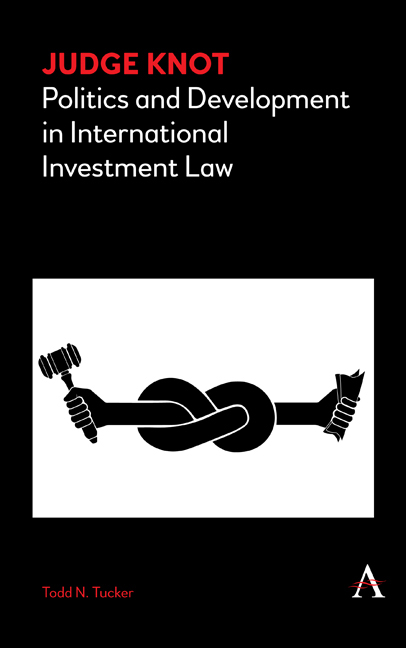Book contents
- Frontmatter
- Dedication
- Contents
- List of Illustrations
- Acknowledgments
- Introduction
- Chapter One Entering the Judge Knot
- Chapter Two Historicizing Investment Law
- Chapter Three Why Investors Demand Investment Law
- Chapter Four Why Arbitrators Supply Investment Law
- Chapter Five Why Investment Law Lasts
- Chapter Six Toward Global Popular Constitutionalism
- Appendix Methodology
- Index
Chapter Six - Toward Global Popular Constitutionalism
Published online by Cambridge University Press: 21 June 2018
- Frontmatter
- Dedication
- Contents
- List of Illustrations
- Acknowledgments
- Introduction
- Chapter One Entering the Judge Knot
- Chapter Two Historicizing Investment Law
- Chapter Three Why Investors Demand Investment Law
- Chapter Four Why Arbitrators Supply Investment Law
- Chapter Five Why Investment Law Lasts
- Chapter Six Toward Global Popular Constitutionalism
- Appendix Methodology
- Index
Summary
I hate when organizations say, “Investor– state dispute settlement restricts sovereignty, human rights, environment, and so forth.” Bullshit! That is in a sense a criticism of the whole system of treaty or international law. You gave something to get something. You have voluntarily agreed to have what you do judged by certain standards. If you don't want that, then don't enter into the treaty. When you see how hard environmental organizations work to get treaties concluded? To ban various substances? They want states bound, okay? So it is a question of, what is your cause?
— Investment arbitrator interviewed for Judge KnotIs another investment law possible? Up to this point, we have seen how investment arbitration builds on long- standing and increasingly conservative projects in Western liberal thought about the appropriate balance between state and market (chapters 2 and 3), represents an ingenious but asymmetric and complex substitute for missing governance institutions in the global economy (chapters 4 and 5) and tangles up domestic politics and law (chapter 1).
The downsides of this system are increasingly getting notice. Witness chapter 1's opening quote from comedian John Oliver, fuming over controversial tobacco arbitrations and raging that investors even have the option of second- guessing democratic decisions in international arbitrations. But this last chapter's leading quote reminds us that second- guessing states is precisely what the international law project is all about. Putting constraints on carbon emissions, war and child labor are just some of the achievements of a project that goes back centuries. Is our discomfort with investment arbitration about something specific and isolatable to it, or a vestigial Biblically inspired dislike of those that would dare to judge us (or our democratic choices)?
We can split the criticism of investment law into what I will call an abolitionist (“judge not”) camp and an institutionalist (“judge knot”) perspective. The first viewpoint is implicit in much contemporary criticism of investor– state dispute settlement (ISDS). It sees any international review of domestic regulations as illegitimate. It wonders why states ever allowed themselves to be internationally judged, let alone by clubby untenured arbitrators (partly) paid for and appointed by the corporations that bring the caseload. For the abolitionists, such a regime can only end in a chilling of government regulations, and the only solution is for countries to pull out of investment treaties posthaste.
- Type
- Chapter
- Information
- Judge KnotPolitics and Development in International Investment Law, pp. 157 - 190Publisher: Anthem PressPrint publication year: 2018



